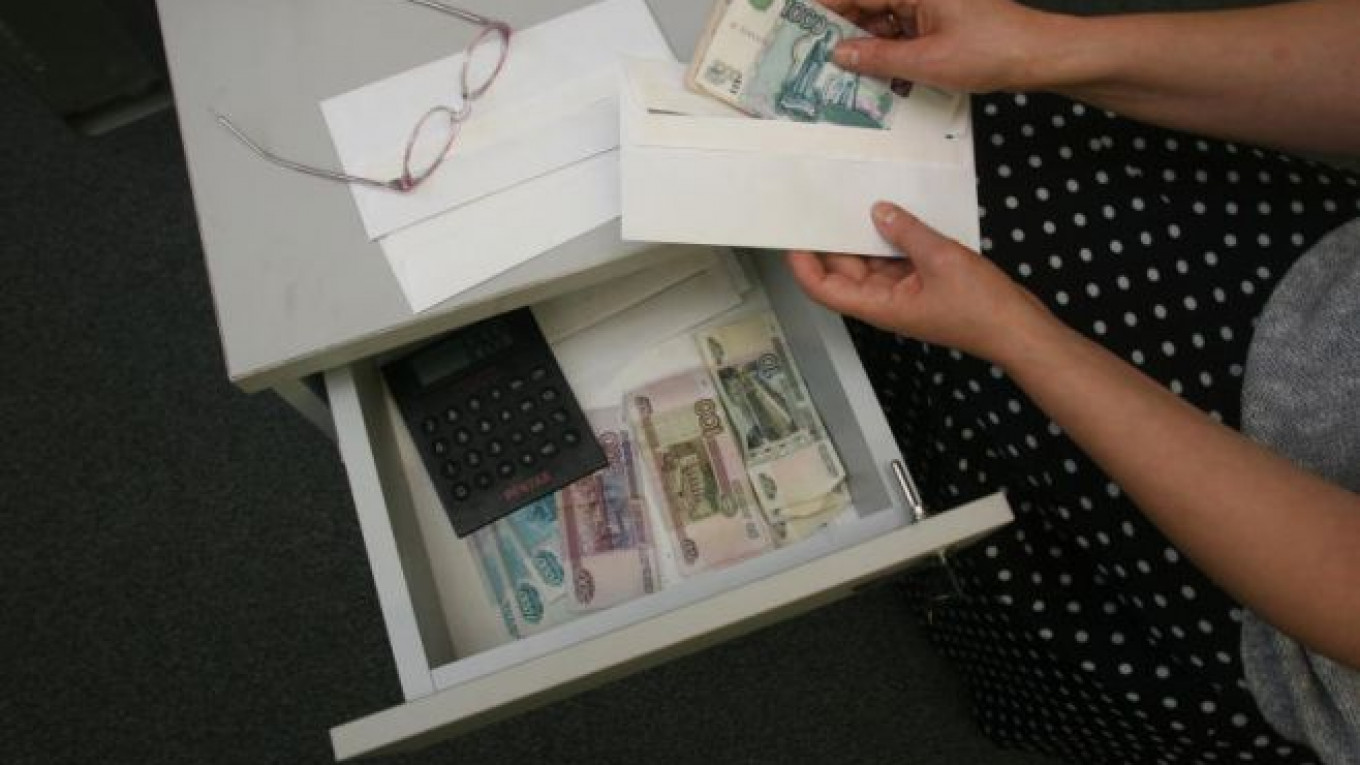More than 40 percent of Russians would be willing to forgo the right to free speech and the freedom to travel abroad if Russian authorities would guarantee "decent" salaries and pensions, a poll released Tuesday by independent pollster the Levada Center revealed.
Forty-two percent of Russians said they preferred "decent" wages and pension payments over the freedom of speech and the opportunity to travel abroad.
But it was a close race, with 49 percent of respondents voicing the opposite preference.
The poll produced similar results to one conducted in 2013, when 43 percent of Russians said they preferred financial stability over the opportunity to travel abroad and the right to freely express their views. At the time, 46 percent leaned in the opposite direction.
In 2008, as the world grappled with a large-scale economic crisis, 54 percent of Russians preferred freedom of speech and travel to salaries, and only 35 percent cared more about their income.
Meanwhile, 44 percent of respondents thought the government should play a more active role in cracking down on free speech, by banning books and films deemed "immoral." Thirty-five percent said the distribution of explicit materials should be restricted. A meager 17 percent expressed the view that any form of censorship is intolerable.
The poll also showed that the majority of Russians prefer to take a passive approach when it comes to fighting for their rights.
Sixty-nine percent of Russians, according to the poll, would prefer to avoid any and all dealings with the authorities. Only 23 percent said they were determined to fight for what the government has promised to do or provide.
This may owe to the fact that 60 percent of Russians don't believe the general population can hold the authorities accountable for their actions. Only 22 percent stated the opposite.
Nearly half of the respondents who lacked faith in government accountability attributed their opinion to the view that the authorities do not let ordinary people have a say in important issues.
Only 18 percent of Russians consider massive protests likely, and even fewer — 14 percent — would be willing to participate, should they occur, the pollster revealed.
The poll was carried out between June 19 and 22 among 1,600 residents of 46 Russian regions. The margin of error was no greater than 3.4 percent, according to the pollster.
Contact the author at d.litvinova@imedia.ru
A Message from The Moscow Times:
Dear readers,
We are facing unprecedented challenges. Russia's Prosecutor General's Office has designated The Moscow Times as an "undesirable" organization, criminalizing our work and putting our staff at risk of prosecution. This follows our earlier unjust labeling as a "foreign agent."
These actions are direct attempts to silence independent journalism in Russia. The authorities claim our work "discredits the decisions of the Russian leadership." We see things differently: we strive to provide accurate, unbiased reporting on Russia.
We, the journalists of The Moscow Times, refuse to be silenced. But to continue our work, we need your help.
Your support, no matter how small, makes a world of difference. If you can, please support us monthly starting from just $2. It's quick to set up, and every contribution makes a significant impact.
By supporting The Moscow Times, you're defending open, independent journalism in the face of repression. Thank you for standing with us.
Remind me later.






